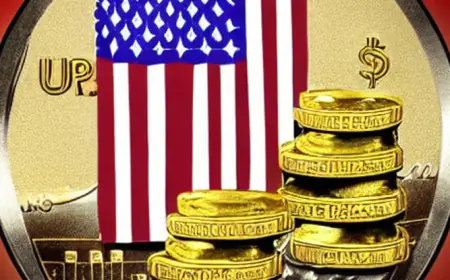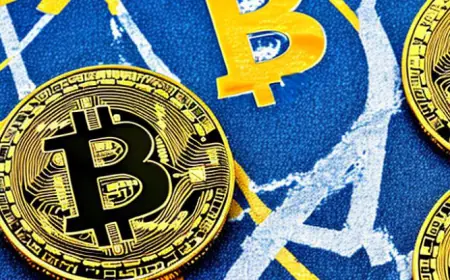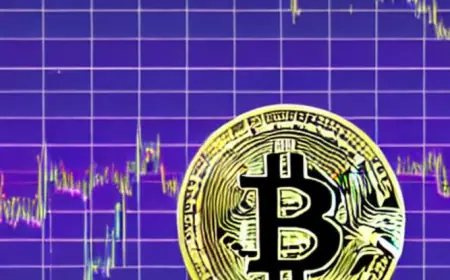Ripple Spent $200 Million in Legal Fees Defending SEC Lawsuit
Learn about Ripple's costly legal battle with the SEC as they reportedly spent $200 million in legal fees defending against the lawsuit. Get insights into the ongoing legal dispute and its potential impact on the cryptocurrency industry.

Ripple, one of the largest cryptocurrency companies, has been embroiled in a legal battle with the U.S. Securities and Exchange Commission (SEC) over whether its digital asset XRP is a security. The dispute has resulted in Ripple reportedly spending a staggering $200 million in legal fees. In this article, we delve into the details of this ongoing legal saga, its potential implications for Ripple and the wider cryptocurrency industry, and what the future may hold for XRP.
The Ripple-SEC Legal Battle
In December 2020, the SEC filed a lawsuit against Ripple Labs Inc., its co-founder Christian Larsen, and CEO Brad Garlinghouse, alleging that they had conducted an unregistered securities offering by selling XRP, Ripple's digital currency, to investors.
The SEC's argument was that XRP should be considered a security, much like a stock or bond, and therefore subject to regulation by the agency. Ripple, on the other hand, has maintained that XRP is a currency and should be treated as such.
The legal battle that ensued has been a long and costly one for Ripple. The company reportedly spent over $200 million in legal fees defending against the lawsuit. In addition, XRP's value plummeted after the SEC's lawsuit was filed, with many exchanges delisting the cryptocurrency or suspending trading.
Ripple has denied any wrongdoing and has accused the SEC of creating uncertainty and damaging the cryptocurrency industry by filing the lawsuit. The company has also criticized the SEC for failing to provide clear guidance on how to determine whether a digital asset is a security or a currency.
The legal battle is still ongoing, with both sides engaging in heated arguments and legal maneuvers. Ripple has filed a motion to dismiss the SEC's lawsuit, arguing that the agency is trying to regulate XRP as a security retroactively. The SEC, meanwhile, has sought to obtain internal documents from Ripple to bolster its case.
The outcome of the legal battle is uncertain, and it could have far-reaching implications for the cryptocurrency industry as a whole. If the court rules that XRP is indeed a security, it could set a precedent for how other digital assets are regulated. On the other hand, if Ripple prevails, it could help establish clearer guidelines for the industry and provide more certainty for investors and companies alike.
Ripple's Response to the SEC Lawsuit
In response to the SEC's lawsuit, Ripple has taken several steps to defend itself and its digital asset XRP.
Firstly, Ripple has argued that the SEC's case is fundamentally flawed because it is based on an outdated view of XRP. The company has pointed out that XRP is being used by a growing number of financial institutions as a means of facilitating cross-border payments, and that it has a distinct use case from other digital assets that are more clearly securities.
Secondly, Ripple has highlighted the fact that the SEC has failed to provide clear guidance on how to determine whether a digital asset is a security or not. This lack of clarity has created confusion and uncertainty for investors and companies alike, and has made it difficult for them to comply with regulatory requirements.
Thirdly, Ripple has argued that the SEC's lawsuit has been motivated in part by a desire to protect the interests of traditional financial institutions, which see digital assets like XRP as a threat to their business models. The company has accused the SEC of failing to prioritize the interests of investors and consumers, and of using outdated regulatory frameworks to stifle innovation in the cryptocurrency industry.
Despite these arguments, Ripple's legal battle with the SEC has taken a toll on the company and its digital asset XRP. The lawsuit has created uncertainty and volatility in the cryptocurrency markets, and has forced Ripple to divert significant resources towards defending itself in court.
Looking ahead, it remains to be seen how the legal battle will play out and what the implications will be for Ripple, XRP, and the wider cryptocurrency industry. However, it is clear that this dispute has highlighted the need for clearer regulatory guidance and a more nuanced approach to the regulation of digital assets.
Potential Implications for Ripple and the Cryptocurrency Industry
The outcome of Ripple's legal battle with the SEC could have significant implications for both Ripple and the wider cryptocurrency industry.
If the court rules that XRP is indeed a security, Ripple could face hefty fines and penalties, and its business model could be severely impacted. The company could be forced to register XRP as a security with the SEC, which would subject it to a range of regulatory requirements, such as disclosure and reporting obligations. This could make it more difficult for Ripple to work with financial institutions and could hinder the adoption of XRP as a means of facilitating cross-border payments.
On the other hand, if Ripple prevails, it could help establish clearer guidelines for the industry and provide more certainty for investors and companies alike. This could be a major step forward for the cryptocurrency industry, which has long struggled with regulatory uncertainty and a lack of clarity around how digital assets should be regulated.
Regardless of the outcome, the legal battle between Ripple and the SEC has highlighted the need for clearer regulatory guidance and a more nuanced approach to the regulation of digital assets. The cryptocurrency industry is still in its infancy, and it is crucial that regulators take a balanced and forward-looking approach to its development.
In conclusion, Ripple's legal battle with the SEC is a high-stakes dispute that could have far-reaching implications for the cryptocurrency industry. While the outcome is uncertain, it is clear that this dispute has brought to light the need for clearer regulatory guidance and a more nuanced approach to the regulation of digital assets.
In summary, the legal battle between Ripple and the SEC is an ongoing dispute with high stakes for both Ripple and the wider cryptocurrency industry. The SEC's lawsuit alleging that XRP is a security has created significant uncertainty and volatility in the cryptocurrency markets, and has forced Ripple to spend millions of dollars defending itself in court.
Regardless of the outcome, this dispute highlights the need for clearer regulatory guidance and a more nuanced approach to the regulation of digital assets. As the cryptocurrency industry continues to evolve and mature, it is crucial that regulators take a balanced and forward-looking approach to its development. This will help to promote innovation and protect the interests of investors and consumers alike.
Ultimately, the resolution of this legal battle could have a significant impact on the future of Ripple, XRP, and the wider cryptocurrency industry. It is therefore important for stakeholders to closely monitor the progress of the case and to engage in constructive dialogue around the best way forward for the industry as a whole.
What's Your Reaction?
 Like
0
Like
0
 Dislike
0
Dislike
0
 Love
0
Love
0
 Funny
0
Funny
0
 Angry
0
Angry
0
 Sad
0
Sad
0
 Wow
0
Wow
0





































